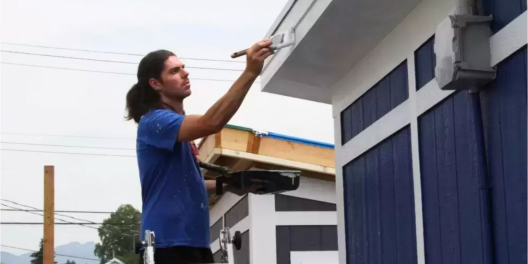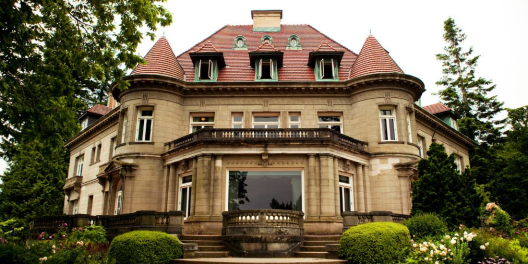What in fresh hell is going on with housing on VanIsle? Seriously, doesn’t this feel bonkers?
House prices are going up. Rent is going up. Every day, there are new stories of folks who can’t find rentals. Or folks who live in their van because they can’t find an apartment, not because they like the lifestyle (#vanlife anyone?). Older people on pensions can’t pay all their bills.
And if interest rates keep going up, all these folks who bought expensive houses in the pandemic are going to feel the squeeze.
When we ask our leaders for help with this affordability crisis, they shrug. It turns out a lot of them are landlords.
Pierre Poilievre? Landlord. Elizabeth May? Also, a landlord.
They’ve made a ton since house prices shot up in the pandemic. Would you change the rules if you were in their shoes?
If you look more into the housing crisis, you’ll probably run into something called the “supply-side solution.” Supply-side solutions say that all we need to do to fix the housing crisis is to build more houses.
Politicians tend to make big promises about this solution. That’s because developers like it: they make more money when they’re building more houses. And developers donate a lot of money to politicians.
But adding a few more houses to a broken system won’t fix anything. It could even make things worse. It’s like adding rotting meat to a spoiled meal—it will just make you sicker.
That said, here are a few changes we could make in BC that would make housing easier for the folks who are struggling.
These days, that’s a lot of us.
Make property investment meh again
For the last 50 years or so, buying a house has been an excellent investment. You spend ten or twenty years paying down the mortgage, and your property value has gone up by the time you sell. It’s all money in the bank.
That might be fine on an individual level. But investors have turned houses into the new stock market. Instead of being a place to love and take care of, a house has become another way to make money.
What if wealthy elites couldn’t just buy houses to sit on them till the prices go up?
Here are a few things we can do to make investors look somewhere else for their big bucks.
1) Shut down speculation
Speculation means investing in something now, hoping that it will make you money later. Most of the time, there’s a risk that your speculation will go bad, and you’ll lose your money. But house prices have just gone up up up.
So wealthy elites buy extra houses because they’re pretty sure they’ll make bank.
Investors and homeowners made huge profits during the pandemic. For the first time ever, in 2021, homeowners made more money from their houses than they did from their jobs.
So even if we build a bunch more houses, if wealthy elites can still buy them to make money, we still have a problem.
An empty homes tax on the houses folks don’t live in makes those extra houses less attractive. Maybe they won’t buy so many of them.
And capping the amount a property value can go up could also work. That’s the rule they have in Germany.
2) Build more houses
There just aren’t a lot of houses on VanIsle. That’s part of why they’re so expensive.
If this is a supply and demand problem, there’s an easy solution: more supply! But—and it’s a big one—we need to build the right kinds of homes. Build townhouses. Build some six-plexes. Build things that regular folks can afford.
If there are lots of types of homes to choose from, then the prices come down.
But that can be hard to do. Construction companies in Victoria have hit a weird problem—they can’t find workers to build houses because those workers can’t find places to live.
And building more supply doesn’t solve every issue, especially if housing costs are still way higher than incomes.
3) Put people in empty dwellings
Some folks need places to live, and other folks own homes that just sit empty. Doesn’t that feel like a missed opportunity?
According to the 2021 Canadian census, 77 dwellings in Cumberland don’t have “usual residents.” That means these condos or houses might be Airbnbs, second homes for folks from out of town, or even just empty. That’s 4% of all dwellings in town.
In Campbell River, there are 684 dwellings like this. That’s also 4% of all the houses in town.
In Port Alberni, where property assessments went up 47% last year, 540 dwellings are mostly empty. That’s a whopping 10% of all houses in town.
Isn’t it strange that 10% of dwellings in Port Alberni are empty when folks are struggling to find places to live?
Make renting stable
For a lot of folks, renting is great. Maybe you don’t want the responsibility of maintaining a house. Maybe strata councils and condo boards make you gag. And if you need to move a lot for work or school, renting is a really useful option.
There are ways to make renting more stable.
1) Build non-market housing
In the 1960s and 70s, the federal government played a much bigger role when it came to housing. It gave out tax credits to people who invested in building rentals. It also invested its own money in co-op housing through the Canada Mortgage and Housing Corporation (CMHC).
In the 1990s, the feds stopped their investment and left building rentals up to the private sector. The private sector only builds things with profit in mind. Instead of new apartments, we got forests of condos.
Why not go back to the good old days?
Instead of looking for profit, we could calculate the actual cost of a new building. Then we figure out how much rent we need over about 50 years to pay for construction and operating costs. Renters would only pay that much rent.
It takes a lot of capital to get something like that going. But governments are big enough to do it. They have the funds. They just need the will to make it happen.
2) Tie rent control to the unit, not the tenant
In BC, a landlord can only raise the rent by a small amount once every 12 months. But if a tenant moves out or is kicked out, the landlord can charge the new tenants whatever they want.
If rent control were tied to the unit instead of the tenant, then landlords wouldn’t be so keen to kick out tenants to raise the rent.
And if rent stayed stable instead of rising all the time, then renters would be able to save more money to buy a house if that’s what they want.
3) Build more subsidized housing
BC Housing runs a program that offers rental units to folks at rates that make sense for their incomes. Working families live in them. Seniors live in them.
Here’s an idea: build more of these units. Build lots of them. And make them nice.
These solutions were adapted from Tristan Cross’s A Dummies’ Guide to Fixing the UK Housing Crisis in Vice magazine.












